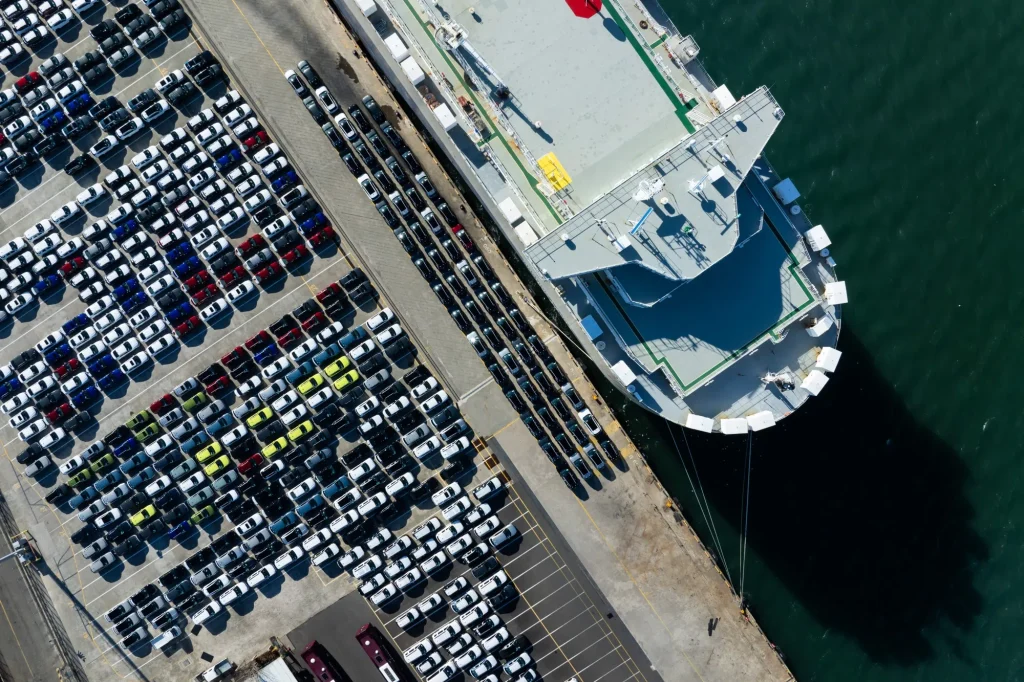[SEOUL] South Korea’s export growth stalled in April in a worrisome sign for the trade-driven economy as officials scramble to cope with Donald Trump’s sweeping tariff campaign.
The value of shipments adjusted for working-day differences slipped 0.7 per cent from a year earlier, according to data released on Thursday (May 1) by the customs office, in a result that gives a closer indication of the trend than the overall monthly figure.
Exports unadjusted for working days expanded by 3.7 per cent in April. While that was stronger than economists’ consensus estimate of a 2 per cent decline, the adjusted figure points to underlying weakness.
Overall imports decreased by 2.7 per cent, resulting in a trade surplus of US$4.8 billion.
Thursday’s data highlight the risks to the economy if the trade war initiated by Trump persists. A 25 per cent levy on US imports of steel and aluminium started in March, with a similar tax on autos and a baseline 10 per cent tariff on all goods kicking in from April.
Trump eased the auto duties this week, but the 10 per cent universal levy is still scheduled to revert to 25 per cent for South Korea after a three-month grace period ends.
BT in your inbox

Start and end each day with the latest news stories and analyses delivered straight to your inbox.
The World Trade Organization last month slashed its trade forecast for this year in light of US trade policies, saying the volume of world merchandise trade will fall by 0.2 per cent – almost three percentage points weaker than it would have been without the US-led trade war.
South Korean automakers shipped nearly half of their total vehicle exports to the US last year, with a value totalling US$70.8 billion, according to government data. Automobiles and semiconductors are among South Korea’s biggest export items to the US and key drivers for its economy.
Thursday’s release showed auto exports fell 3.8 per cent in April from a year earlier while semiconductor shipments gained 17.2 per cent. Outbound shipments to the US fell 6.8 per cent, while exports to China increased 3.9 per cent, the ministry said.
Minimising any impact from Trump’s tariff campaign is a priority to revive an economy that has suffered from a political crisis triggered by former president Yoon Suk-yeol’s short-lived martial law decree in December.
With Yoon’s impeachment and permanent ouster from office, South Korea will hold a snap presidential election on Jun 3. The main opposition Democratic Party’s former chair Lee Jae-myung is currently leading in polls.
South Korea is a key US ally and among the first countries to kick off tariff negotiations, alongside Japan and India. Authorities hope to clinch some semblance of a deal before the Jul 8 deadline.
Last week, Seoul’s finance and trade ministers flew to Washington for talks with US counterparts, and a working-level delegation arrived in the US on Wednesday to continue those discussions.
US Treasury Secretary Scott Bessent said there might be an “agreement of understanding” with Seoul as soon as this week following last week’s meeting, and said on Tuesday that the Asian nation wants to have the “framework of a trade deal done before they go into elections”.
South Korea’s government issued a statement on Wednesday saying it’s not seeking to complete such a framework before the Jun 3 election and will continue negotiations “without hurry”. Its vice-industry minister said on Monday that sealing any package deal before the election is “theoretically impossible”, underscoring the challenges posed by political uncertainties and the tight schedule.
South Korea’s economy shrank in the first quarter as concerns about the looming trade war and political turmoil weighed on domestic demand.
The Bank of Korea decided to keep its benchmark interest rate steady at 2.75 per cent last month even as it warned of a significant increase in downside risks to growth. The won, Asia’s weakest performer last year, has posted gains against the US dollar for the year to date. BLOOMBERG


